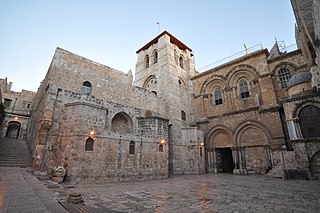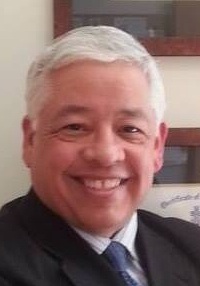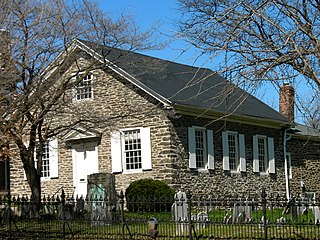
Christianity is an Abrahamic monotheistic religion based on the life and teachings of Jesus of Nazareth. It is the world's largest and most widespread religion with roughly 2.4 billion followers representing one-third of the global population. Its adherents, known as Christians, are estimated to make up a majority of the population in 157 countries and territories, and believe that Jesus is the Son of God, whose coming as the Messiah was prophesied in the Hebrew Bible and chronicled in the New Testament.
Evangelicalism, also called evangelical Christianity or evangelical Protestantism, is a worldwide interdenominational movement within Protestant Christianity that affirms the centrality of being "born again", in which an individual experiences personal conversion; the authority of the Bible as God's revelation to humanity; and spreading the Christian message. The word evangelical comes from the Greek (euangelion) word for "good news".
Theology is the systematic study of the nature of the divine, or more broadly of religious belief. It is taught as an academic discipline, typically in universities and seminaries. It occupies itself with the unique content of analyzing the supernatural, but also deals with religious epistemology, asks and seeks to answer the question of revelation. Revelation pertains to the acceptance of God, gods, or deities, as not only transcendent or above the natural world, but also willing and able to interact with the natural world and to reveal themselves to humankind.
Christian fundamentalism, also known as fundamental Christianity or fundamentalist Christianity, is a religious movement emphasizing biblical literalism. In its modern form, it began in the late 19th and early 20th centuries among British and American Protestants as a reaction to theological liberalism and cultural modernism. Fundamentalists argued that 19th-century modernist theologians had misunderstood or rejected certain doctrines, especially biblical inerrancy, which they considered the fundamentals of the Christian faith.
Most Americans consider themselves religious or spiritual in some way, while Christianity is the most widely professed religion in the United States, with Protestantism being the most common form of Christianity in the country. According to Gallup, 58% and 17% report praying often or sometimes, respectively, and 46% and 26% report that religion plays a very important or fairly important role, respectively, in their lives. However, the majority of Americans do not regularly attend religious services and have low confidence in religious institutions, with the country rapidly secularizing since the 1990s. According to the 2017 World Values Survey, the U.S. is more secular than the median country. A large variety of faiths have historically flourished within the country.

The mainline Protestant churches are a group of Protestant denominations in the United States and in some cases Protestant denominations in Canada largely of the theologically liberal or theologically progressive persuasion that contrast in history and practice with the largely theologically conservative Evangelical, Fundamentalist, Charismatic, Confessional, Confessing Movement, historically Black church, and Global South Protestant denominations and congregations. Some make a distinction between "mainline" and "oldline", with the former referring only to denominational ties and the latter referring to church lineage, prestige and influence. However, this distinction has largely been lost to history and the terms are now nearly synonymous.

There are between 800 million and 1 billion Protestants worldwide, among approximately 2.5 billion Christians. In 2010, a total of more than 800 million included 300 million in Sub-Saharan Africa, 260 million in the Americas, 140 million in Asia-Pacific region, 100 million in Europe and 2 million in Middle East-North Africa. Protestants account for nearly forty percent of Christians worldwide and more than one tenth of the total human population. Various estimates put the percentage of Protestants in relation to the total number of the world's Christians at 33%, 36%, 36.7%, and 40%, while in relation to the world's population at 11.6% and 13%.

Mark Allan Noll is an American historian specializing in the history of Christianity in the United States. He holds the position of Research Professor of History at Regent College, having previously been Francis A. McAnaney Professor of History at the University of Notre Dame. Noll is a Reformed evangelical Christian and in 2005 was named by Time magazine as one of the twenty-five most influential evangelicals in America.

Religion of black Americans refers to the religious and spiritual practices of African Americans. Historians generally agree that the religious life of black Americans "forms the foundation of their community life". Before 1775 there was scattered evidence of organized religion among black people in the Thirteen Colonies. The Methodist and Baptist churches became much more active in the 1780s. Their growth was quite rapid for the next 150 years, until their membership included the majority of black Americans.

Christianity is the most prevalent religion in the United States. Estimates from 2021 suggest that of the entire U.S. population about 63% is Christian. The majority of Christian Americans are Protestant Christians, though there are also significant numbers of American Roman Catholics and other Christian denominations such as Latter-day Saints, Orthodox Christians and Oriental Orthodox Christians, and Jehovah's Witnesses. The United States has the largest Christian population in the world and, more specifically, the largest Protestant population in the world, with nearly 210 million Christians and, as of 2021, over 140 million people affiliated with Protestant churches, although other countries have higher percentages of Christians among their populations. The Public Religion Research Institute's "2020 Census of American Religion", carried out between 2014 and 2020, showed that 70% of Americans identified as Christian during this seven-year interval. In a 2020 survey by the Pew Research Center, 65% of adults in the United States identified themselves as Christians. They were 75% in 2015, 70.6% in 2014, 78% in 2012, 81.6% in 2001, and 85% in 1990. About 62% of those polled claim to be members of a church congregation.

Diana Butler Bass is an American historian of Christianity and an advocate for progressive Christianity. She is the author of eleven books.

Edwin David Aponte is a Puerto Rican-American cultural historian, religious studies scholar, and contributor to the development of Christianity among Hispanic and Latino/a Americans. His research focuses on the interplay between religion and culture, especially Hispanic/Latino(a) religions, African-American religions, North American religious history, and congregational studies. He is one of a small number of U.S. Hispanic historians of Christianity.

Christians are people who follow or adhere to Christianity, a monotheistic Abrahamic religion based on the life and teachings of Jesus Christ. The words Christ and Christian derive from the Koine Greek title Christós (Χριστός), a translation of the Biblical Hebrew term mashiach (מָשִׁיחַ). While there are diverse interpretations of Christianity which sometimes conflict, they are united in believing that Jesus has a unique significance. The term Christian used as an adjective is descriptive of anything associated with Christianity or Christian churches, or in a proverbial sense "all that is noble, and good, and Christ-like." It does not have a meaning of 'of Christ' or 'related or pertaining to Christ'.
Edwin Scott Gaustad was a professor of history at the University of California, Riverside. He achieved fame with his study of the genealogy of religion in the United States, Historical atlas of religion in America. The 1972 edition of this work has been used in secular histories of Mainline Protestantism and the Emergent church movement (denominationalism) for decades, and his a Religious History of America was a standard text for college students. A graduate of Baylor University and Brown University, Gaustad dedicated his career to sharing his expansive research on religious history. Gaustad was president of the American Society of Church History. Gaustad died March 25, 2011, in Santa Fe, New Mexico at the age of 87.
Postchristianity is the situation in which Christianity is no longer the dominant civil religion of a society but has gradually assumed values, culture, and worldviews that are not necessarily Christian. Post-Christian tends to refer to the loss of Christianity's monopoly in historically Christian societies to atheism or secularism. It does not include formerly Christian-majority societies that now follow other religions such as Islam.

In the United States, evangelicalism is a movement among Protestant Christians who believe in the necessity of being born again, emphasize the importance of evangelism, and affirm traditional Protestant teachings on the authority as well as the historicity of the Bible. Comprising nearly a quarter of the U.S. population, evangelicals are a diverse group drawn from a variety of denominational backgrounds, including Baptist, Mennonite, Methodist, Pentecostal, Plymouth Brethren, Quaker, Reformed and nondenominational churches.

Douglas ("Jake") Jacobsen is a scholar in the field of religious studies whose work encompasses history, theology, and sociology. His early works are analyses of Pentecostalism and American Protestantism. He won the Pneuma Book Award from the Society for Pentecostal Studies in 2004. His current work focuses on world Christianity, including the books The World's Christians: Who They Are, Where They Are, and How They Got There and Global Gospel: An Introduction to Christianity on Five Continents.
The historiography of religion is how historians have studied religion in terms of themes, sources and conflicting ideas. Historians typically focus on one particular topic in the overall history of religions in terms of geographical area or of theological tradition.
David Morgan is Professor of Religious Studies at Duke University, in Durham, North Carolina, with an additional appointment in Duke's Department of Art, Art History and Visual Studies. Morgan served as the Chair in the Department of Religious Studies in Trinity College of Duke University from 2013 to 2016. He is the author of numerous books, including The Forge of Vision (2015), The Embodied Eye (2012), and The Sacred Gaze (2005).
Asad Q. Ahmed is an American scholar who is the Magistretti Distinguished Professor of Middle Eastern Languages and Culture and Professor of Arabic and Islamic studies in the Department of Middle Eastern Languages and Cultures at the University of California, Berkeley. He is also the director of the Center for Middle Eastern Studies.











